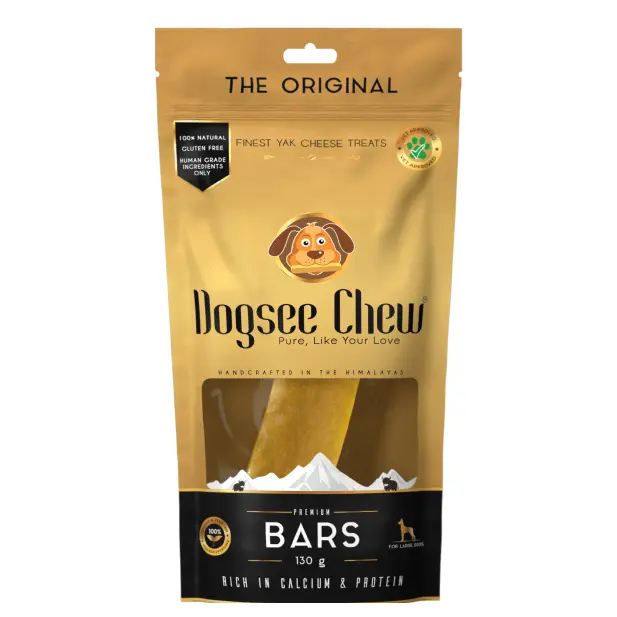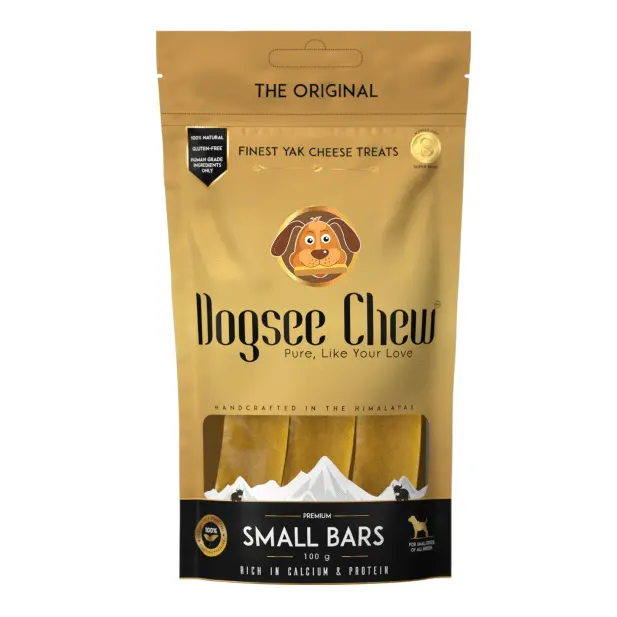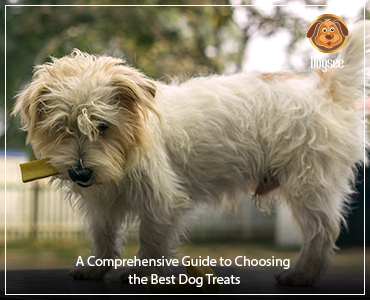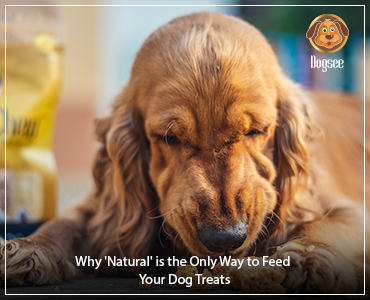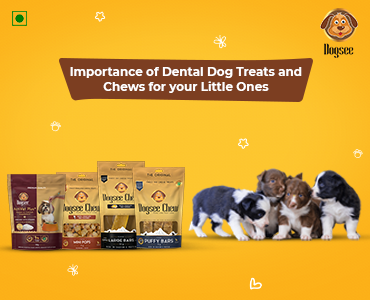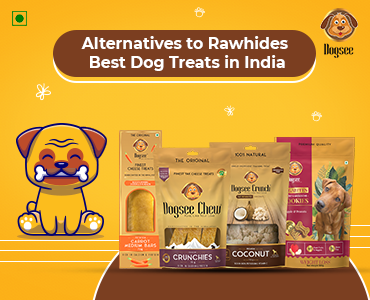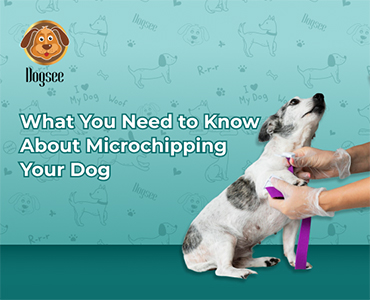
As rightly said by the American actor Robert Wagner, “A dog will teach you unconditional love. If you can have that in your life, things won’t be too bad.” We display our love when we take care of the pets by keeping them mentally engaged, promoting their health, and providing entertainment. A number of brands are launching products that allow pet parents to take better care of their pets. One of these inventions is chew treats, which help pet parents to engage their dogs for a longer duration. Yak chews and rawhide are two of the most popular types of chews available on the market. What distinguishes the two, though, and which is better for your dog? Throughout this blog, we will explain the advantages of each chew treat and which is best for your dog's health.
Pawsitively Perfect Pick: How to Find the Best Chew for Your Furry Friend
Since each dog is different, picking the ideal chew is crucial for your dog's general health and well-being. Dogs have an instinct to chew, which has many advantages, including improved dental health, increased cerebral stimulation, and less anxiety. But not all chews are made equal, so it's important to choose one that meets your dog's requirements. The following are some things that must be taken into account:
1. Your Dog’s Chewing Style: Some dogs are aggressive chewers, while others are more gentle. While hard chews might work for aggressive chewers, pups or older dogs may find the hardness difficult to handle.
2. Examine the Health Needs: If your dogs have specific health needs like digestive issues, you might prefer grain-free or gluten-free treat options instead of the generic ones.
3. Behavioural Aspects: Keep an eye on your dog's behaviour, particularly when you're not around. Chew treats can keep them from feeling lonely and help them get through boredom.

Pet Parent Alert: Stay Clear of These Risky Ingredients in Dog Chews
The market today is flooded with treats that claim to be healthy. There are several components you should stay away from to safeguard your dog's health. Dog chews should never contain artificial sweeteners like xylitol because they can be hazardous. Avoid giving your dog chews that include chemicals or preservatives like BHA or BHT as BHA has been linked to liver damage and cancer. Similarly, BHT has been linked to gastrointestinal issues and skin irritation. Along with these, pet parents should select the right-sized chew to avoid any kind of difficulties. Durability should also be considered. If your dog is a voracious chewer, choose chews that are extra hard. These chews are less prone to shatter into tiny pieces because they are made to resist intense chewing.
Chomp, Chew and Love: Different Types of Dog Chews
Raw-hides for dogs: The inner layer of cow or horse hides is used to make rawhide chews. Because of their durability and easy availability, they are a popular option for many pet parents.
Bully Sticks and Pizzles: Dogs love pizzles, which are prepared from dried buffalo penises. They offer a good amount of protein and are easily digestible.
Yak Chews: Yak chews are an all-natural treat produced from solidified cheese that is made from protein-rich Himalayan yak milk.
Animal organs: Dehydrated body parts like chicken wings, quail feet, duck neck, and pork ear are also great to chew as they start hard, but soften up with the dog's saliva.
All about Rawhide Chews
The term "rawhide" describes an animal's untanned hide. Hides are typically split or separated into two layers. Rawhide chews for dogs are mostly made from the inner layer of the hide. Although you can find chews made from buffalo and pork hides, the majority of rawhide dog treats are derived from the hides of beef cattle. Since rawhide chews are the most easily available chews, they were a go-to option for pet parents. From strong-knotted rawhide bones to braided doughnut-shaped rings, this natural chew is available in a range of classic sizes and styles.
Additionally, dogs naturally chew to relieve stress and boredom, and rawhide chews give them a great outlet. However, rawhide doesn't break down well in a dog's stomach, which could cause obstructions if big chunks are ingested. To enhance texture, appearance, and preservation, many rawhide products are treated with chemicals, which can be harmful to dogs if consumed in excess. Pet parents are increasingly switching to safer, healthier, and more pleasant chew options for their dogs as a result of these possible drawbacks.

All about Yak Chews
Yak cheese chews are 100% natural dog treats manufactured from the milk of the Himalayan yak. The cheese is dried and hardened to create these chews, which provide dogs with a rich, tasty, and incredibly durable treat. Yak chews are a healthier and more natural dog chew alternative since they don't contain artificial additives, preservatives, or chemicals like many commercial dog chews do.
Yak chews are abundant in protein, calcium, and vital elements, which are good for a dog's general health. Yak chews, in contrast to rawhide, are digestible, which lowers the possibility of blockages by breaking down in the digestive tract if little pieces are consumed. Though they don't splinter or get mushy as quickly as rawhide, these chews are durable, making them appropriate for dogs who want to chew. Most dogs, especially those with sensitive stomachs, tolerate yak chews well.
Choosing the Right Chew for Your Dog
It is simple to conclude that, when weighing all of the chews' advantages and disadvantages, yak chew is the safest choice for most dogs. Yak chews are made of natural ingredients that are gentle on the digestive system and provide a good way to keep your dog’s teeth clean. The hard texture helps scrape away plaque and tartar, promoting better oral hygiene. 100% natural Dogsee treats are a good choice that will help your pet’s overall health.
Dogsee Yak Cheese Chews
Dogsee Yak Cheese chews are high-quality chews made from yak milk and are suitable for dogs of all sizes. Your pet will enjoy a safe and healthy treat because these chews are manufactured entirely of natural ingredients.
Dogsee Yak Cheese chew's firm texture helps your dog's teeth get cleaner while they chew, as they prevent tartar & plaque accumulation and fight bad breath. These protein-rich chews offer vital amino acids that promote both general health and muscle growth.
These chews are completely digestible, contrary to rawhide, which lowers the possibility of blockages and digestive problems.
Conclusion
Selecting the proper chew for your pet is crucial for maintaining oral health, digestibility, and other aspects of wellness. By adding Dogsee chews to your dog's diet, you are investing in their general well-being. These chews enhance tooth hygiene, give vital nutrients, and satiate your dog’s natural chewing drive. With yak chews, you can offer a treat that your dog will love and one that you can feel good about giving.
Whichever option you go for, always consider your pet's individual needs and preferences to ensure they have a safe and enjoyable chewing experience. Remember, it's all about keeping those tails wagging and your furry pals happy and healthy!
Frequently Asked Questions (FAQs):
1. How long do yak chews and rawhide last?
Answer: Your dog's chewing habits will determine how long both chews last. Yak chews are denser and may last for hours or even days, whereas rawhide dissolves and wears down quickly.
2. Are there any nutritional differences between rawhide and yak chews?
Answer: Compared to rawhide, yak chews usually include less fat and more protein. While some rawhides may contain additives or preservatives, yak chews are manufactured from natural components.
3. Which type of chew is more digestible?
Answer: Rawhide is less digestible than yak chews. Some dogs may have trouble digesting rawhide, and if they eat significant amounts of it, it may cause gastrointestinal blockage.
Connect with us on Instagram and Facebook to stay in the loop and receive our latest updates!
 HELPFUL0 people found it helpful
HELPFUL0 people found it helpful
Related Blogs
Subscribe to Our Blogs
and never miss on the latest update!










